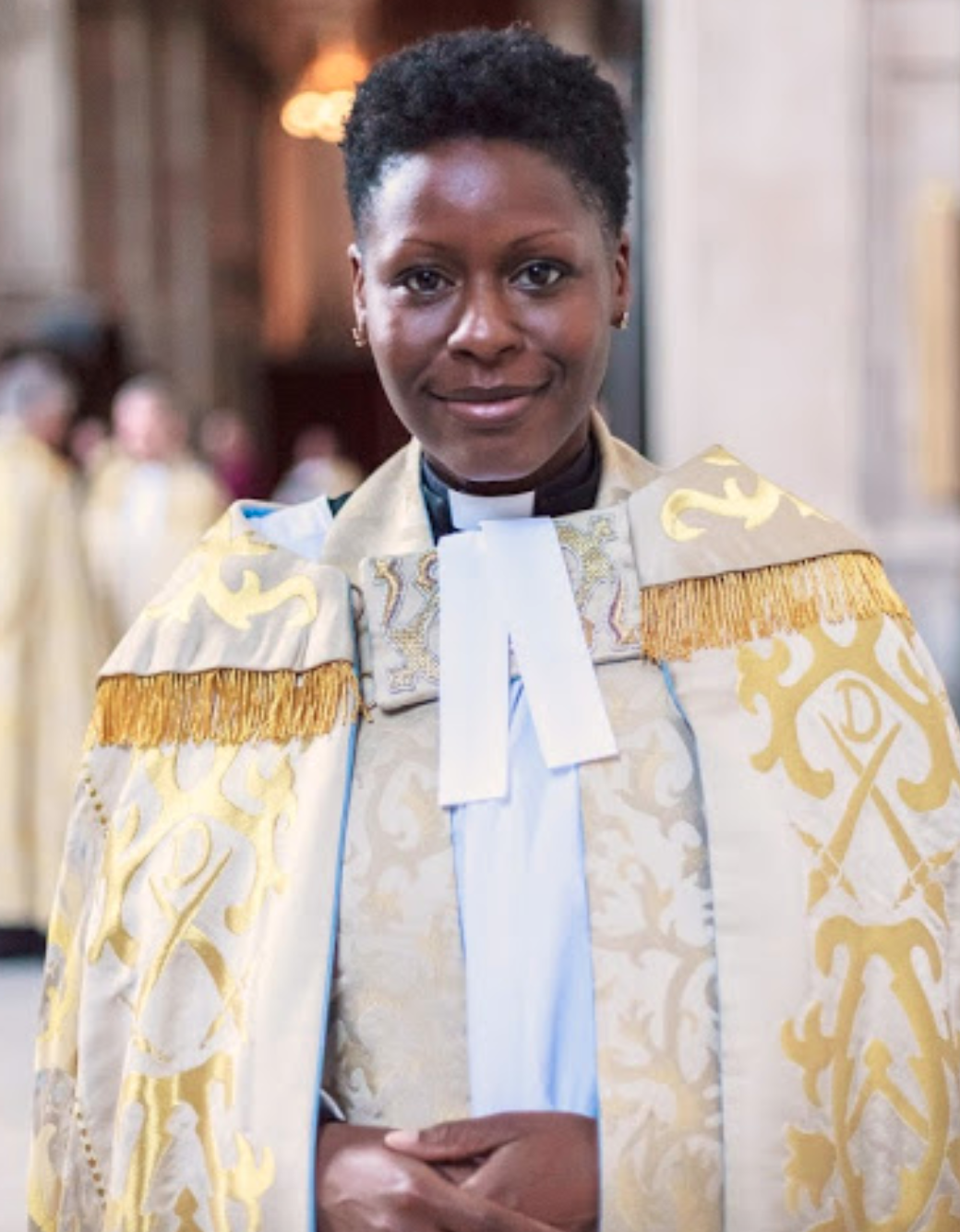Like a gift from the gods on the morning of the greeting card shops reopening in England, the Venerable Liz Adekunle, Archdeacon of Hackney delivered a moving tribute that was dedicated to the importance of sending Christmas cards in BBC Radio 4’s Thought for the Day spot.
While you can still listen to the Archdeacon delivering her very positive message on catch up via BBC Sounds (Thought For The Day 2 Dec 1:48:44), here is a transcript of her uplifting words:

“Many people, if they have not already, will be thinking about writing Christmas cards in the next few days. I was heartened to see the launch yesterday of Cards for Kindness, a campaign to tackle loneliness in the North West, is encouraging people to send a Christmas card to their local care home to brighten up someone’s day.

The Victoria and Albert Museum has the national collection of over 30,000 cards for all occasions and it is fascinating to see how the design and sentiment of Christmas cards has changed over the years.
Nowadays, some cards have some rather generic messages related to Christmas, others use the Christmas season to send family pictures and updates from the year. Charity cards and recycled cards also highlight the changing trends.
It is a testimony to the changing tradition that card giving still exists, given that so much of how we communicate is through the use of email and social media.
I suspect there is an overall decline in sending traditional cards, but the tradition holds importance for many.
A YouGov survey commissioned by Royal Mail has shown that 55% of people think that sending Christmas cards is more important now than ever, amid the pandemic. For Christmas cards are not an immediate form of communication; they are a very special form. They are a reminder that someone is thinking about you and not just in that moment. Unlike when one sends a text and expects a response, a Christmas card involves a process whereby I don’t even need to say that ‘I’ve got it’. And for the sender, there is a sense of not quite knowing how much that card will mean or touch the person you send it to. As the biblical instruction says, it can be a form of giving without expecting anything in return.
This year as we sacrifice our own habits of socialising for someone else, the gestures of care we make, even though we do not see the results, are a symbol of how we might live and interact in a wider sense, not expecting anything in return, the hidden ways we might love each other.
I feel energised when I send a card. It is my gift and in some ways feels like I have achieved something. And once a card sits on a table or a window ledge, there is a timeless quality to the care given as you glance over.
Many of us can’t get everyone a gift at Christmas, but a card is a gift.”
Top: Venerable Liz Adekunle (second left) at her ordination to become the Archdeacon of Hackney in 2016.























